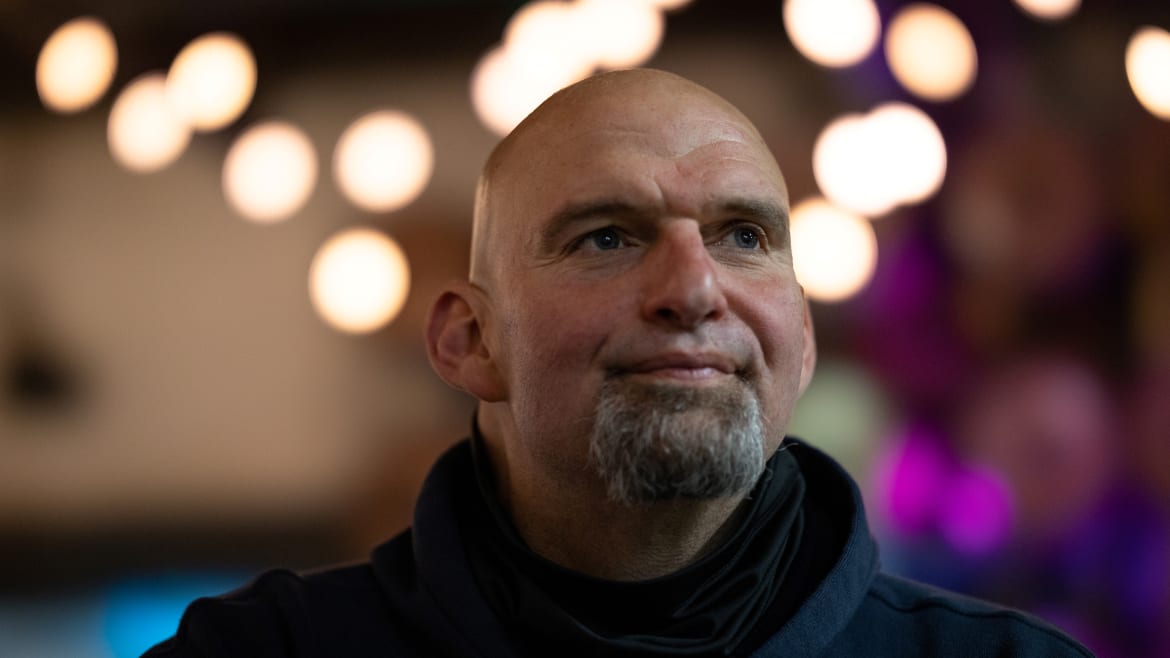Hannah Beier/Reuters
When Dr. Amytis Towfighi saw that Sen. John Fetterman (D-PA) had been hospitalized for depression, as his office announced Thursday, she wasn’t surprised.
“About one in three stroke survivors develop depression at some point after their stroke,” she told The Daily Beast. (The Cleveland Clinic estimates a slightly more conservative range of between 10 and 27 percent.) “It’s quite common. It’s something that, as stroke neurologists, we’re always on the lookout for.”
In 2016, Towfighi, a professor of neurology and population and public health sciences at USC’s Keck School of Medicine, chaired a writing group for the American Heart Association that worked to publish a scientific statement on post-stroke depression. The statement outlined what was known about the condition, what knowledge gaps remain, and how best to treat it. That’s the bottom line, according to Towfighi: Though symptoms can vary widely and are different in every patient, post-stroke depression should be approached like any other medical condition.

